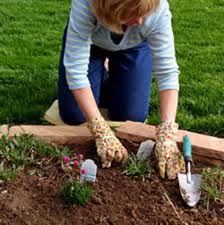Gardening
- Gardening by The Yard
- Flower Gardens
- Gardening Advice
- Gardening Magazines
- Gardening Gloves
- Gardening Gifts
- Get Your Kids Enjoy Home Gardening
- Container Gardening
- Benefits of Gardening for Kids
- Choosing Plants
- Gardening Supplies
- Gardening Tools
- Organic Gardening of Fruits and Vegetables
- Herb Gardening
- Hydroponics Gardening
- Indoor Gardening
- Landscaping your Garden
- Modern Gardening Equipment
- National Home Gardening Club
- Safe Pest Control Tips
- Caring for your Plants
- Rose Diseases
- Vegetable Gardening
Safe Pest Control Tips

Like parents trying to protect their children, surely, gardeners would like to protect their plants from the bad bugs. How else could they do accomplish this but with the help of pest control measures? But as the same parents-children analogy, a certain kind of protection might be dangerous. Pest control must be done with utmost consideration to safety; safety in terms of the plants, animals and humans. This holds especially true for those with vegetable and organic gardens.
The main purpose of taking care of vegetables and organic gardens will be defeated if they become "tainted" with pest control chemicals. Plants are extensions of the beauty and privileges given by Mother Nature. What good could anyone get from chemical-laden vegetables and flowers?
Here are a few tips to make pest control a less damaging or more environment-friendly endeavor. These tips consist of the steps taken for long-term maintenance of your pest control system.
Use the physical pest control process.
This may be accomplished through picking by hand, creating barriers and traps and plugging holes.
Apply biological pest control.
Breed predatory insects such as Green lacewings to feed on the pesky aphids that just can't get enough of your foliage. Bacterial insecticides such as B. thuringiensis could also be used against caterpillars.
Finally, resort to chemical pest control.
Organic pesticides or the least-toxic pest control chemicals must be considered as only the last resort in warding off those menacing pests. Some of these not-so-toxic chemicals include insecticidal soaps, horticultural oils, dehydrating dusts, etc.
Consider the use of safer pest control substitutes.
Recipes for alternative pest control include the following:
Against Green Aphids and Mites - 1 tablespoon of liquid soap and a cup of vegetable oil must be mixed. Dilute a teaspoon of this solution with a cup of water. Then, you can spray this mixture to those annoying aphids and mites.
Against Cockroaches - Dusts of boric acid can be applied to cracks or entry points of these insects. Bay leaves on pantry shelves could also help in warding off these critters.
Make sure that the chemicals you use as pest control are specific for the insects you are targeting. This could be assured through intently checking on labels. If the insect you would like to kill is not included in the list of the chemical's target insects, most probably it will not work on that insect.
With these bits of indispensable pest control advice, as a responsible steward of the environment, you are taking care of your plants as well as others.
